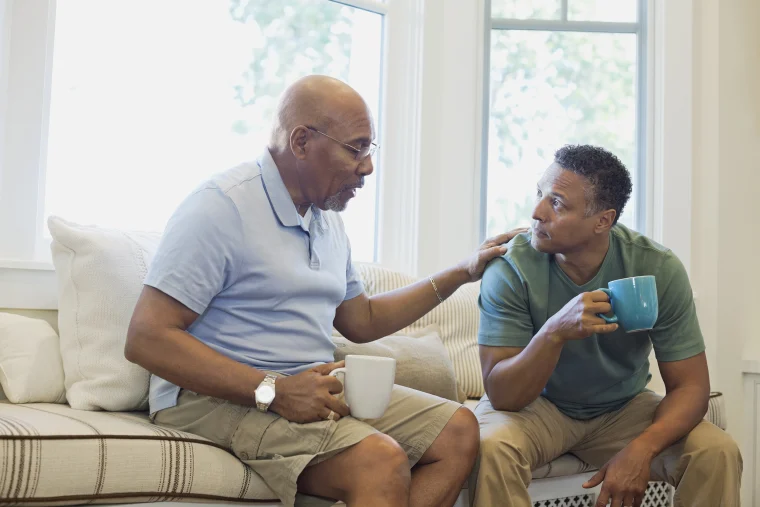Men are less likely than women to be diagnosed with any of the most common mental health disorders, and those who have received a diagnosis are less likely to seek treatment. Yet nearly four times as many men as women die by suicide.
Social norms around gender teach young men that they should be emotionally strong and avoid showing vulnerability. Therefore, men tend to downplay their mental health symptoms, don’t acknowledge what they’re going through, and are reluctant to seek help.

Men don’t tend to talk openly about their emotional struggles, such as feeling sad, worthless, or hopeless. As a result, mental health issues in young men often go undiagnosed or misdiagnosed, meaning far more men are suffering.
Men and women can develop most of the same mental disorders and conditions but may experience different symptoms. Some symptoms include:
- Anger, irritability, or aggressiveness
- Noticeable changes in mood, energy level, or appetite
- Difficulty sleeping or sleeping too much
- Difficulty concentrating, feeling restless, or on edge
- Increased worry or feeling stressed
- Misuse of alcohol and/or drugs
- Sadness or hopelessness
- Suicidal thoughts
- Feeling flat or having trouble feeling positive emotions
- Engaging in high-risk activities
- Aches, headaches, digestive problems without a clear cause
- Obsessive thinking or compulsive behavior
- Thoughts or behaviors that interfere with work, family, or social life
- Unusual thinking or behaviors that concern other people
Anxiety disorders are one of the most common male mental health disorders. Types of anxiety disorders in men include: Panic disorder.
Male depression is one of the biggest mental health issues in men. CDC statistics show that 5.5 percent of young adult males suffer from depression. But while male depression is diagnosed less often than in women, many young men have depression that is not identified by their doctor because their symptoms are less typical of major depressive disorder.
Data from the most recent Monitoring the Future survey of young adults shows that, in general, young men are more likely than women to abuse drugs, including marijuana, hallucinogens, and prescription painkillers. Plus, men are almost two times more likely to binge drink than women, and have consistently higher rates of alcohol-related deaths and hospitalizations.
PTSD is another of the most common mental health issues in men. Moreover, PTSD isn’t just something military veterans suffer from. Approximately 60 percent of men experience at least one trauma in their lives, typically related to accidents, physical assault, combat, or witnessing death or injury.
We see, men are struggling, and they are not getting the care they need. That leaves men with common mental health disorders feeling isolated and alone—and ultimately puts them at high risk of suicide attempts. Recognizing the signs that you or someone you love may have a mental disorder is the first step toward getting treatment. The earlier that treatment begins, the more effective it can be.

